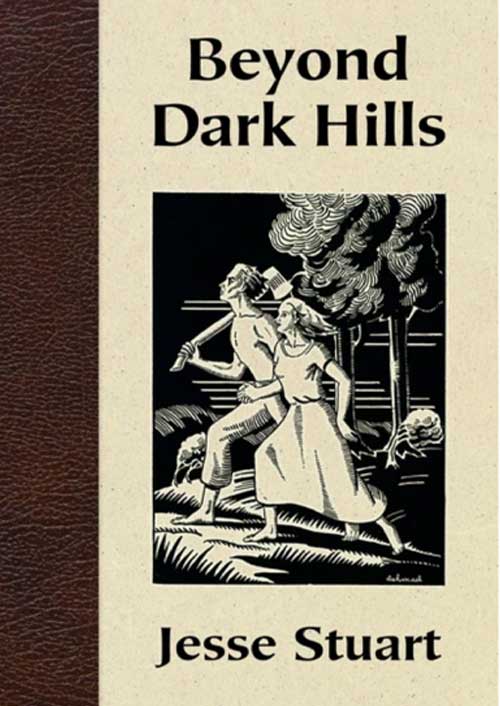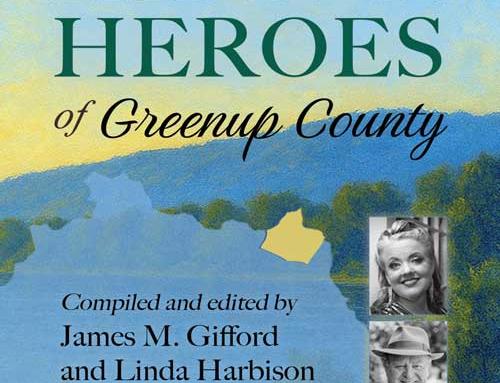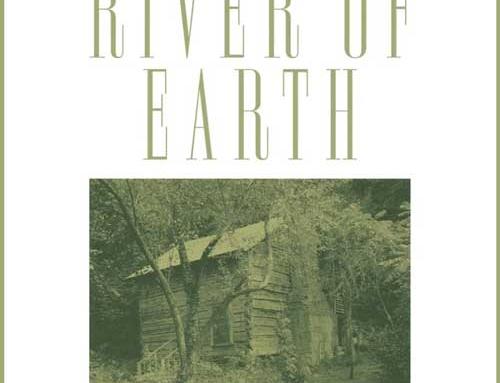Ninety years ago, a young man from Kentucky borrowed $150, gathered up his Oliver typewriter, packed a trunk short on clothes and long on manuscript pages, and headed for Vanderbilt University in Nashville, Tennessee, to pursue a master’s degree. He was essentially a farmer, and he was impressed with what he had heard about the Agrarians, a group of Vanderbilt writers who were more interested in the land than the growing industrialization of the South.
 The young man was Jesse Stuart, later the author of “Beyond Dark Hills,” a book he began at Vanderbilt in 1932. A tragic accident robbed Stuart of a Vanderbilt M.A. degree, but Stuart, like many Appalachian people then and now, had the ability to create victory from life’s cruel and bitter defeats. Old Wesley Hall, where Stuart roomed and the location of the cafeteria where he worked to pay for his food, burned to the ground. With that building went not only his room and job, but the work he had done on his thesis, more than fifty poems, and part of a novel. Instead of finishing his thesis, the homeless student survived on a meal a day while he threw himself into a new assignment – an eighteen-page autobiographical paper for Dr. Edwin Mims’ class.
The young man was Jesse Stuart, later the author of “Beyond Dark Hills,” a book he began at Vanderbilt in 1932. A tragic accident robbed Stuart of a Vanderbilt M.A. degree, but Stuart, like many Appalachian people then and now, had the ability to create victory from life’s cruel and bitter defeats. Old Wesley Hall, where Stuart roomed and the location of the cafeteria where he worked to pay for his food, burned to the ground. With that building went not only his room and job, but the work he had done on his thesis, more than fifty poems, and part of a novel. Instead of finishing his thesis, the homeless student survived on a meal a day while he threw himself into a new assignment – an eighteen-page autobiographical paper for Dr. Edwin Mims’ class.
In the eleven days allotted for the assignment, Jesse crammed 322 pages from border to border with a flood of memories of his childhood, his family, and the unique, and often strange, people of his northeastern Kentucky hill country. Embarrassed to present his professor with such a bulky memoir, Stuart secured the manuscript with rubber bands in order to make as small a package as he could, waited until everybody else in the class had turned in a paper, and then attempted to slip his work unobtrusively into the pile. Mims accepted it only after lashing a grim statement of disappointment in Stuart – who was already flunking his course in Victorian literature.
Of the 322 pages about a simple farm boy and his family, Stuart’s professor later said, “I have been teaching school for forty years and I have never read anything so…beautiful, tremendous and powerful.” Several years later, Mims wrote: “That was, of course, the most remarkable term paper I ever got from a student.” Stuart later added a final chapter and the manuscript was published as “Beyond Dark Hills” in 1939. It is the story of a hill boy from Kentucky, defining his life as he made the passage from boyhood to manhood.
This story of a mountain boy’s educational hegira prompted an Eastern millionaire to pay for the complete college education of five young people from Stuart’s community – five recommended by Stuart. The millionaire was emotionally moved to help because the theme of education is so strong in Stuart’s intensely straightforward account of his first twenty-five years.
This book is as relevant today as it was in the early 1930s. Here, Stuart shares all his youthful anxieties as he prepares for life and then ventures forth on his own. He discusses his first “true love,” his early school years, his adolescent desire to escape the confines of his parents’ loving but often smothering tutelage, his short-lived stints as a carnival worker and as an apprentice blacksmith, before entering college. Stuart freely shares his frustrations and successes as he examines the forces that mold and shape him into a famous author and educator.
These ageless, universal experiences were told by a vibrant, precocious young man who became one of the most widely read American authors of the twentieth century. For the young reader who has yet to experience the transition from childhood to adulthood, this book can be an inspiring guide. For older readers, it may be a beautiful trip down memory lane.
For old and young alike, this autobiographical memoir provides inspiration, hope, desire, and courage to make each life count.
“Beyond Dark Hills” is the July selection of the JSF Regional Readers book discussion group. The group will meet on Tuesday, July 26; coffee and conversation at 2:00 p.m. with the book discussion to follow at 2:30 p.m. The book is available at the Jesse Stuart Foundation Bookstore at 4440 13th Street in Ashland, and can be ordered by telephone at 606-326-1667 or on this website.
By James M. Gifford
JSF CEO & Senior Editor
Ninety years ago, a young man from Kentucky borrowed $150, gathered up his Oliver typewriter, packed a trunk short on clothes and long on manuscript pages, and headed for Vanderbilt University in Nashville, Tennessee, to pursue a master’s degree. He was essentially a farmer, and he was impressed with what he had heard about the Agrarians, a group of Vanderbilt writers who were more interested in the land than the growing industrialization of the South.
The young man was Jesse Stuart, later the author of “Beyond Dark Hills,” a book he began at Vanderbilt in 1932. A tragic accident robbed Stuart of a Vanderbilt M.A. degree, but Stuart, like many Appalachian people then and now, had the ability to create victory from life’s cruel and bitter defeats. Old Wesley Hall, where Stuart roomed and the location of the cafeteria where he worked to pay for his food, burned to the ground. With that building went not only his room and job, but the work he had done on his thesis, more than fifty poems, and part of a novel. Instead of finishing his thesis, the homeless student survived on a meal a day while he threw himself into a new assignment – an eighteen-page autobiographical paper for Dr. Edwin Mims’ class.

In the eleven days allotted for the assignment, Jesse crammed 322 pages from border to border with a flood of memories of his childhood, his family, and the unique, and often strange, people of his northeastern Kentucky hill country. Embarrassed to present his professor with such a bulky memoir, Stuart secured the manuscript with rubber bands in order to make as small a package as he could, waited until everybody else in the class had turned in a paper, and then attempted to slip his work unobtrusively into the pile. Mims accepted it only after lashing a grim statement of disappointment in Stuart – who was already flunking his course in Victorian literature.
Of the 322 pages about a simple farm boy and his family, Stuart’s professor later said, “I have been teaching school for forty years and I have never read anything so…beautiful, tremendous and powerful.” Several years later, Mims wrote: “That was, of course, the most remarkable term paper I ever got from a student.” Stuart later added a final chapter and the manuscript was published as “Beyond Dark Hills” in 1939. It is the story of a hill boy from Kentucky, defining his life as he made the passage from boyhood to manhood.
This story of a mountain boy’s educational hegira prompted an Eastern millionaire to pay for the complete college education of five young people from Stuart’s community – five recommended by Stuart. The millionaire was emotionally moved to help because the theme of education is so strong in Stuart’s intensely straightforward account of his first twenty-five years.
This book is as relevant today as it was in the early 1930s. Here, Stuart shares all his youthful anxieties as he prepares for life and then ventures forth on his own. He discusses his first “true love,” his early school years, his adolescent desire to escape the confines of his parents’ loving but often smothering tutelage, his short-lived stints as a carnival worker and as an apprentice blacksmith, before entering college. Stuart freely shares his frustrations and successes as he examines the forces that mold and shape him into a famous author and educator.
These ageless, universal experiences were told by a vibrant, precocious young man who became one of the most widely read American authors of the twentieth century. For the young reader who has yet to experience the transition from childhood to adulthood, this book can be an inspiring guide. For older readers, it may be a beautiful trip down memory lane.
For old and young alike, this autobiographical memoir provides inspiration, hope, desire, and courage to make each life count.
“Beyond Dark Hills” is the July selection of the JSF Regional Readers book discussion group. The group will meet on Tuesday, July 26; coffee and conversation at 2:00 p.m. with the book discussion to follow at 2:30 p.m. The book is available at the Jesse Stuart Foundation Bookstore at 4440 13th Street in Ashland, and can be ordered by telephone at 606-326-1667 or on this website.
By James M. Gifford
JSF CEO & Senior Editor




